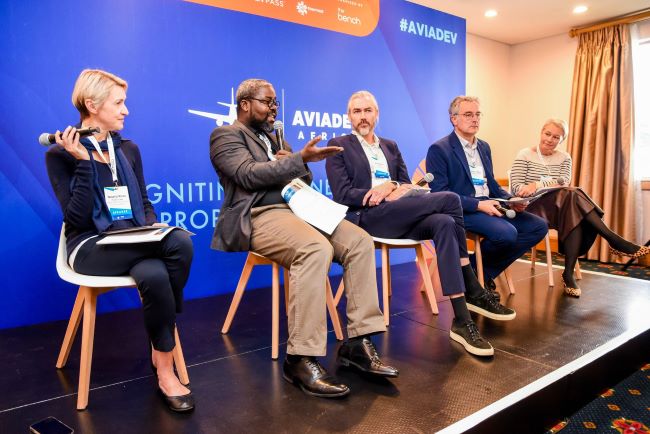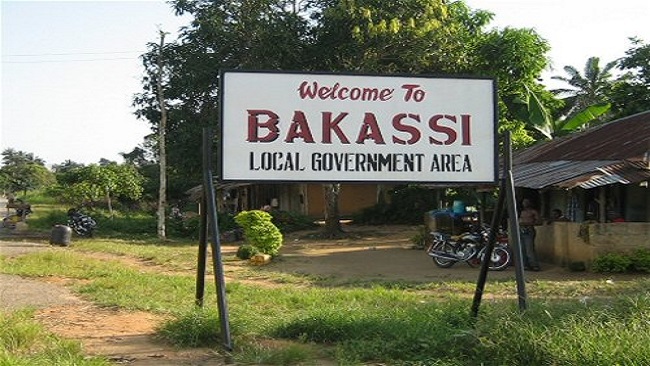5, July 2024
Aviation executives call on tourism boards to boost Africa air routes 0
Africa’s vast tourism potential remains untapped due to a lack of air connectivity, with Africa currently accounting for just 1.9% of global passenger and cargo traffic. However, aviation experts believe national tourism boards have a unique opportunity to drive new airline routes and spur economic growth.
At a recent AviaDev Africa workshop, which was hosted in collaboration with the SADC Business Council Tourism Alliance, airline executives stressed tourism boards’ power lies in leveraging market data and industry relationships to convince sceptical carriers of new routes’ long-term viability.
“Tourism is more than just leisure; it’s a critical economic activity that requires strategic thinking and collaboration across sectors,” said Kojo Bentum-Williams, UN Tourism’s Senior Africa Communications Expert.
Sylvain Bosc, former Chief Commercial Officer of SAA and Fastjet, stressed the importance of demonstrating sustained profitability. “Destination marketing organisations (DMOs) must sell a long-term vision highlighting the destination’s growth prospects and economic impact,” he said. “Creative incentives like co-marketing, reducing airline costs, and quantifying passenger volumes can be more powerful than direct subsidies.”
Bosc noted DMOs need to “bring new light” to data airlines already have by offering insights into upcoming local economic developments like new mines or infrastructure projects that could drive corporate traffic. “Local insights can provide airlines with the confidence they need to invest in new routes,” he said.
Natalia Rosa, Project Lead of the SADC Business Council Tourism Alliance, underscored the critical role of aviation in regional development: “Aviation is not a luxury, it’s the lifeblood of a modern regional economy. Improved air connectivity unlocks a range of benefits: it streamlines travel, opens doors for new tourism markets, and strengthens regional economic ties.”
Gavin Eccles, Head of Vertical at BAE Ventures, emphasised tourism boards must be “at the table” with compelling cases backed by local market insights, travel trade ties and unique selling points that airlines often lack.
“Tourism boards should not only provide data but also offer a local perspective that airlines may not have,” Eccles said, citing India’s successful “Incredible India” branding undermined by poor connectivity.
Regional coordination like aligned visa policies, joint itinerary promotion and tapping conservation funds can also help finance route development. But Tim Harris of Helm Growth Advisors cautioned: “Retaining and expanding existing airline services should be the priority before attracting new routes.”
While direct subsidies face sustainability questions, Bentum-Williams said other incentives enable an “environment of trust” for profit-focused airlines.
“There’s a need to change the narrative from just paying airlines to fly routes to creating an environment of trust and confidence,” he said.
Jillian Blackbeard, CEO of Africa’s Eden Tourism Association, highlighted successful collaboration with Proflight through local stakeholder and trade backing, building airline confidence without major incentives.
“We worked closely with Proflight and local stakeholders to ensure that routes were supported by the trade and the private sector, which helped build confidence in the airline and led to successful route development without significant financial incentives,” Blackbeard shared.
Coordinated efforts leveraging DMOs’ destination expertise can unlock increased connectivity – a lifeline for Africa’s tourism economies long grounded by poor air links.
The AviaDev Africa workshop was designed as a platform for action to address the challenges of the aviation industry and collaborate on solutions. The intention from the outset was to examine how tourism stakeholders, including national tourism organisations and private sector tourism associations, can become involved in route development and assist airlines with route promotion. The success of the workshop and has now secured it a place at AviaDev 2025 in Zanzibar. Scheduled for the welcome reception day before the main conference, it will equip tourism delegates with essential route development building blocks and comprise two days of networking and collaboration focused on reshaping African aviation’s future.



























5, July 2024
Vatican excommunicates major Pope Francis critic for ‘schism’ 0
The Vatican has excommunicated Archbishop Carlo Maria Vigano, one of Pope Francis’s most virulent critics, after judging him guilty of splitting the Church, the dicastery in charge of doctrine said Friday.
The 83-year-old ultra conservative, who has called in the past for Francis to resign as pope, has been on trial since last month after being accused by the Dicastery for the Doctrine of the Faith of the crime of schism, or splitting the Catholic Church.
“His public statements manifesting his refusal to recognise and submit to the Supreme Pontiff, his rejection of communion with the members of the Church subject to him, and of the legitimacy and magisterial authority of the Second Vatican Council are well known,” wrote the dicastery in a statement.
“At the conclusion of the penal process, the Most Reverend Carlo Maria Vigano was found guilty of the reserved delict of schism,” it wrote, adding that his punishment was “excommunication” in accordance with canon law.
An excommunicated Catholic is prohibited from administering and receiving the sacraments and from exercising ecclesiastical functions, according to canon law.
Vigano — who served as the Vatican’s papal envoy to the United States from 2011 to 2016 and who is backed by an ultra-conservative US church faction — has been an outspoken critic of Francis, going so far as accusing him of heresy.
In announcing last month that he had been summoned to appear before the powerful dicastery, which is charged with defending Catholic doctrine, the retired archbishop wrote on X: “I regard the accusations against me as an honour.”
He did not appear before the tribunal, which judged him in absentia.
– ‘Judged as a heretic’-
In a pages-long declaration, Vigano railed against Francis’s welcome for undocumented migrants, his “delirious encyclicals” about climate change and authorisation of blessings for same-sex couples, and accused him of promoting his allies.
“I accuse Jorge Mario Bergoglio of heresy and schism, and I ask that he be judged as a heretic and schismatic and removed from the Throne which he has unworthily occupied for over eleven years,” he wrote last month, using the Argentine pope’s given name.
Vigano is allied with staunch traditionalists within the Church, especially in the United States, who have battled Francis’s more progressive moves on liturgical or social issues, such as the Latin Mass or welcoming LGBTQ people into the Church.
Accusing him of sowing confusion and failing to uphold key Catholic beliefs, they have sometimes called into question the legitimacy of Francis as leader of the world’s 1.3 million Catholics — raising fears of a rupture within the Church.
In 2018, Vigano made headlines by calling for Francis’s resignation, publishing a scathing list of accusations over the pope’s management of sexual abuse cases within the Church.
In particular, Vigano accused Francis of having long protected former American cardinal Theodore McCarrick, who was defrocked a year later for sexual abuse against a minor.
Vigano again caused a major scandal in 2019 by publishing a long letter of unconditional support for then-US President Donald Trump, criticizing confinement measures during the Covid pandemic and defending a crackdown on rioters in the United States.
In November, in a rare move, Francis dismissed US bishop Joseph Strickland, a prominent conservative who had repeatedly criticised his papacy from his Tyler, Texas diocese.
Source: AFP